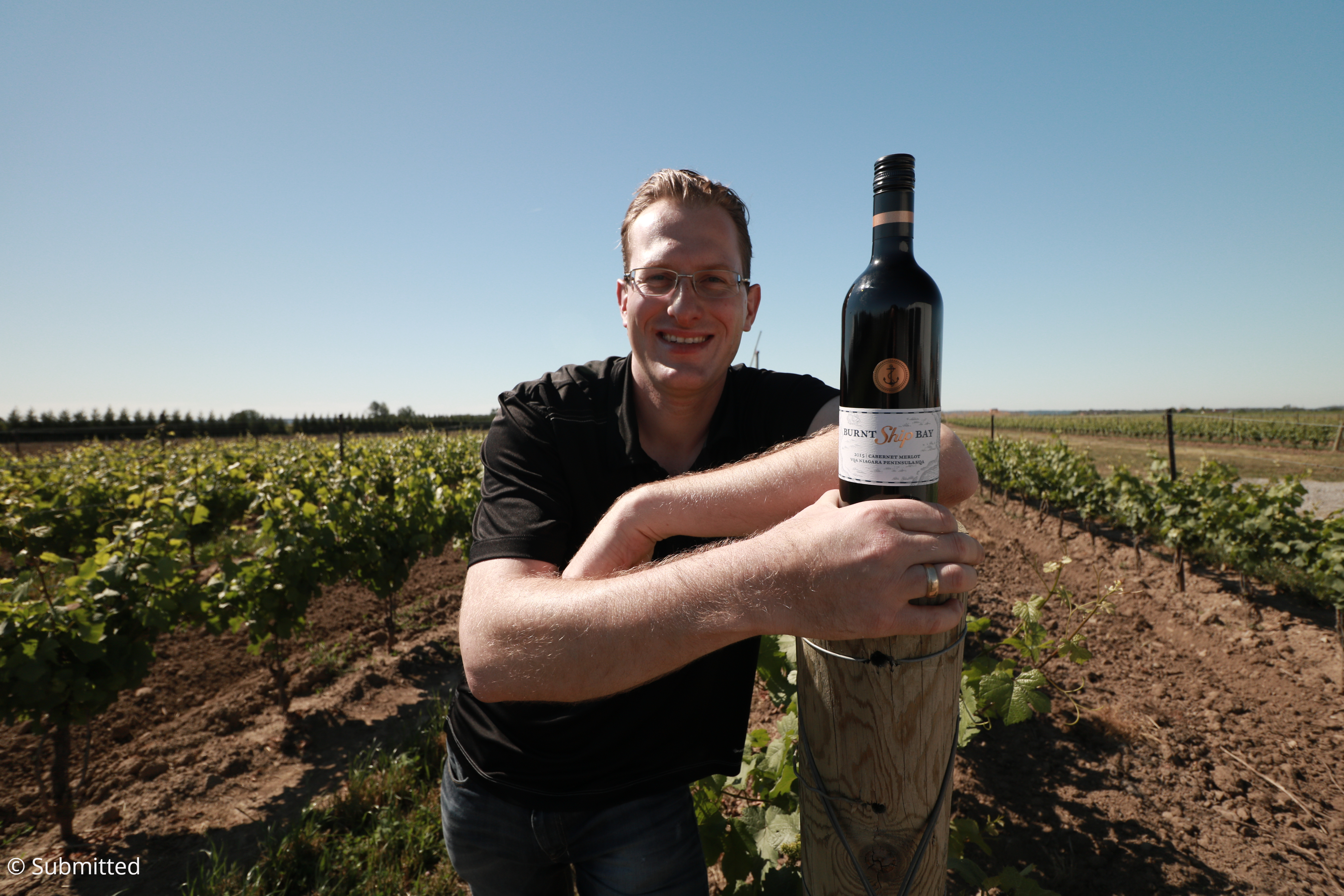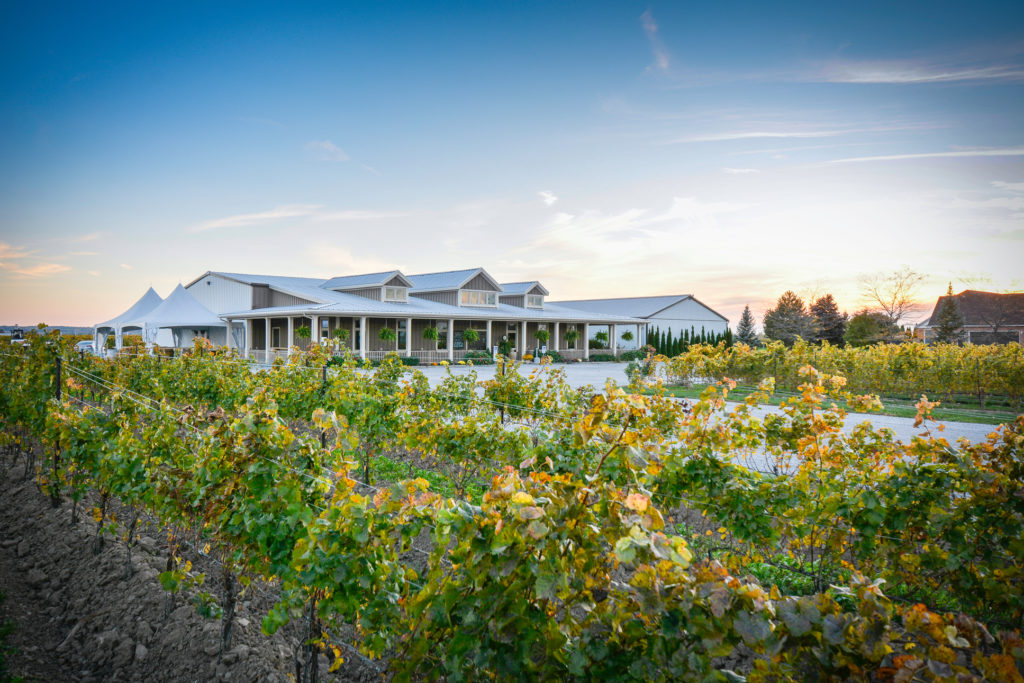
Uncorked ~ German-Canadian Winemakers: Marcel
What brought German winemakers to Canada? How did they establish their businesses? What’s the difference between German and Canadian wine?
SoGerman talked with four German-Canadian winegrowers who live in Southern Ontario.
Marcel Morgenstern
Marcel Morgenstern is Director of Sales at Burnt Ship Bay Estate Winery and Pond View Estate Winery.
(SoGerman) Why did you come to Canada?
(Marcel) In 1994, I was 18 years old, I decided to do an exchange. I had to choose between Canada and the USA – and I decided to go to Canada. I ended up in a small community in the Lake Erie region where I attended high school and met my future wife.
Then, I headed back to Germany to finish my degree. To be able to visit her at least once a year and being able to pay the bills for the phone calls (in the first month we both received a bill about $500) I loaded trucks working night shifts. It continued like this for four years.
After finishing high school and my Zivildienst (formerly mandatory military training for young men in Germany) we decided to get married and so I moved to Canada.
Wow. That’s really impressive. And now, how did you get started with winemaking?
I originally come from the north of Germany – there are hardly any vineyards – however, my father came from the region of Bad Kreuznach in the south of Germany, a region surrounded by vineyards. Every time we would visit my grandparents, I was fascinated by the art of growing wine, however, I never expected to be able to pursue it in Canada.
In Canada, I studied tourism for a couple of years. I started to work as a tour guide for a winery in Niagara and I really enjoyed it; however, after two years, I wanted to do gain more experience in the industry. So, I started to work for another wine producer and I helped to build the wholesale from the ground up. Then, I changed to the management of a big wine company, which was really interesting. However, after a while, I realized that working strictly in a middle-management sales position, held me back from the creative process of being involved in the hands-on marketing and sales of well-crafted wines.
At the time, a friend of mine, who has been growing grapes with his family since the 70’s, had the idea to open a small winery. He convinced me to enter his business, so I became responsible for the marketing department. At the same time, we acquired more land in the Niagara region and we decided to create another company for which I hold 50 per cent. Today, I basically manage the sales and marketing for two winery businesses.
Many regions in Germany are famous for their wines. So is France and Italy. How can Canadian wine, which is still new in Germany, compete in this market?
Firstly, because it’s exotic. Secondly, because the quality of the wine we produce is very high.

Do you export your wines as well?
Yes, we export to Asia and Europe. For example, this year we have been to the ProWein (a wine convention in Germany) in Düsseldorf with our own wine. I have attended this great tradeshow with Niagara wines for 15 years now.
Are the basics given for producing high-quality wines?
Absolutely. Especially in the location of the Niagara region considering that the Niagara region lies on the same latitude than Tuscany for example. Then, of course, every region has its own specific grounds. The Niagara region is very particular because we are growing our wines on the ground of an ancient subtropical sea in a unique microclimate. In a nutshell, it’s a very good location for growing wine.
What are your best sellers?
Riesling, Chardonnay, Sauvignon, and Carbernet Franc are in my opinion the best grape in our region. Our vineyard is within the warmest region on the Niagara peninsula, so we can produce the heavy red wines.
Tell me about the famous ice wine?
Yes, Icewine is our speciality. Every region has its signature wine. In Germany, it’s the Riesling, for Canada, it’s the Icewine, because we can produce it every year. In times of global warming, we have a comparative advantage over other regions, like Germany, that are producing less and less of Icewine since it’s more and more risky to leave the grapes on the vines. So, if you would like to buy Icewine in larger quantities, you most likely buy Canadian wine.
Do you still have contact to Germany?
Oh yes, I’m the only one of my family who came to Canada. My parents are still in Oldenburg, so are many of my friends, and my brother is in Mannheim. This year I have spent more time in Germany than in Canada, because we are really pushing into the European market.
How are distributers reacting when you present them your wine in Germany?
Very good. Canada in general has a very good reputation, and when you are able to start a conversation about exotic wines, even better.
Last question: If you could give one advice to someone who would like to move to Canada, what would you say?
Marriage is easy! (laughs) Honestly, I would say you should stop comparing! If you start to compare it can be frustrating. Every country has its advantages and disadvantages. I think you should take the best of two worlds and create your own kind of reality. And Canada in its diversity gives you the possibility to do so.
You have to keep in mind, that once you decide to immigrate, the country you leave will likely not be the same when you return.
Thank you for your time!